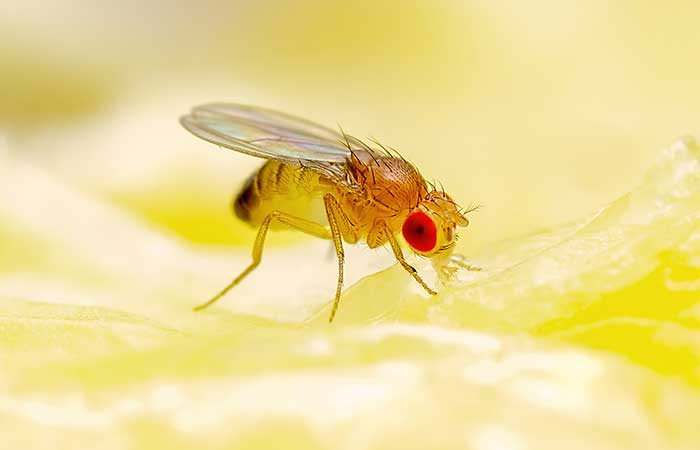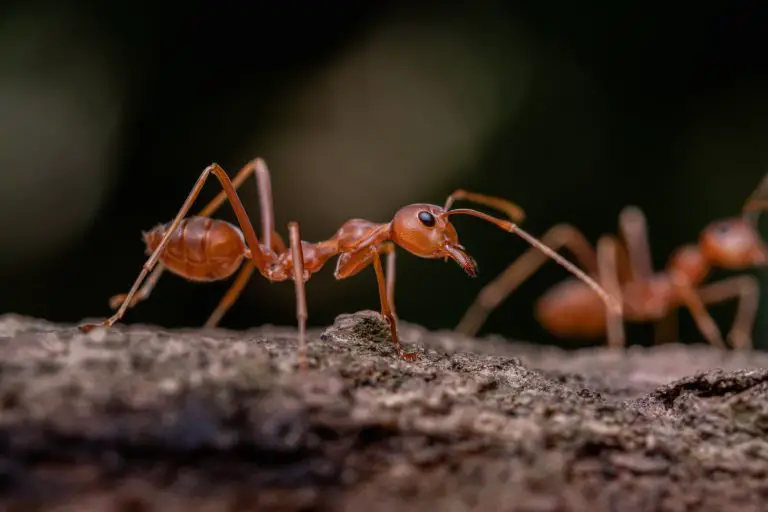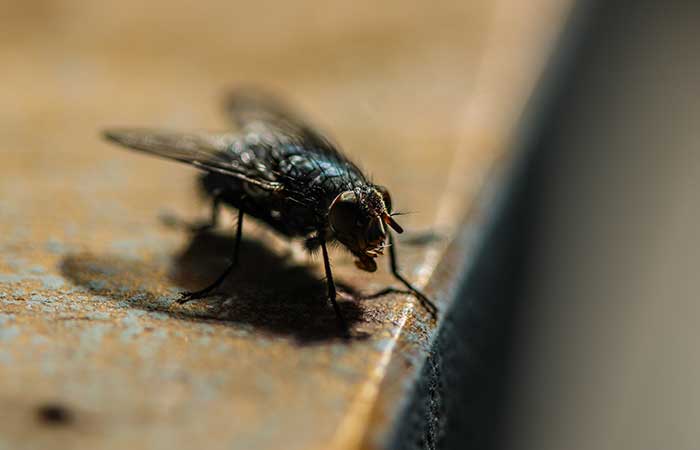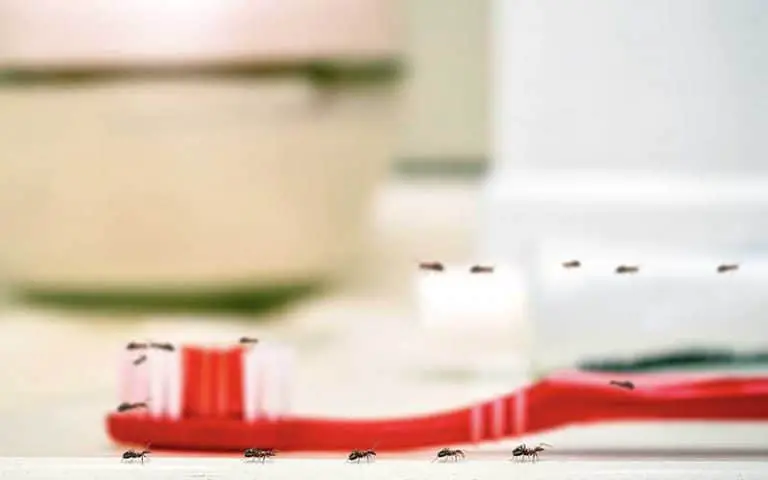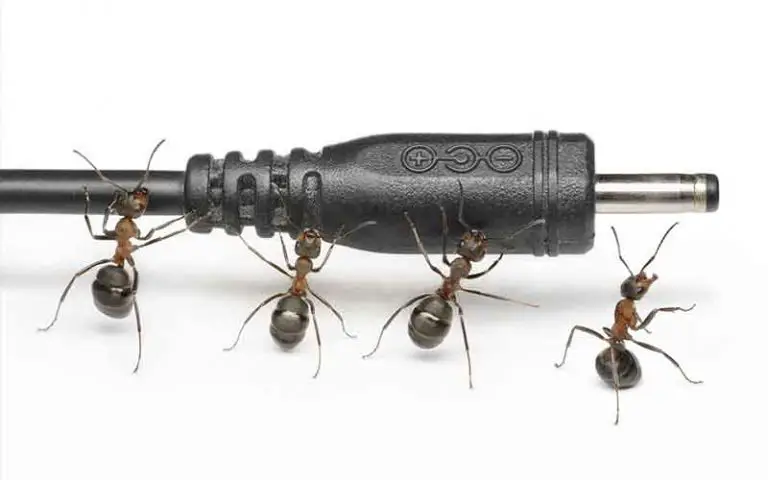Does Killing Ants Attract More Ants?
It can be easy to think that killing ants will get rid of them once and for all. Ideally, this is what should happen.
However, whenever you kill ants in your kitchen or other parts of the house, it is quite likely that these dead ants will end up attracting more ants near them.
Why exactly does this happen? What is it about dead ants that attract more ants? To help you out, we will take you through the reasoning behind why killing ants can attract more ants as well as some ways in which you can kill ants once and for all.
Why Do Dead Ants Attract More Ants?
Killing ants attracts more ants. This is mainly because ants tend to secrete several chemicals that can signal to the other ants in their colony to warn them of danger or to simply communicate with them.
Whenever the ants in the colony receive this kind of communication, they try to respond to the ant’s signal by coming towards it.
When it comes to dead ants, there are two main chemicals that they secrete that can alert the other ants of their death. You can find out more about these chemicals in the following sections.
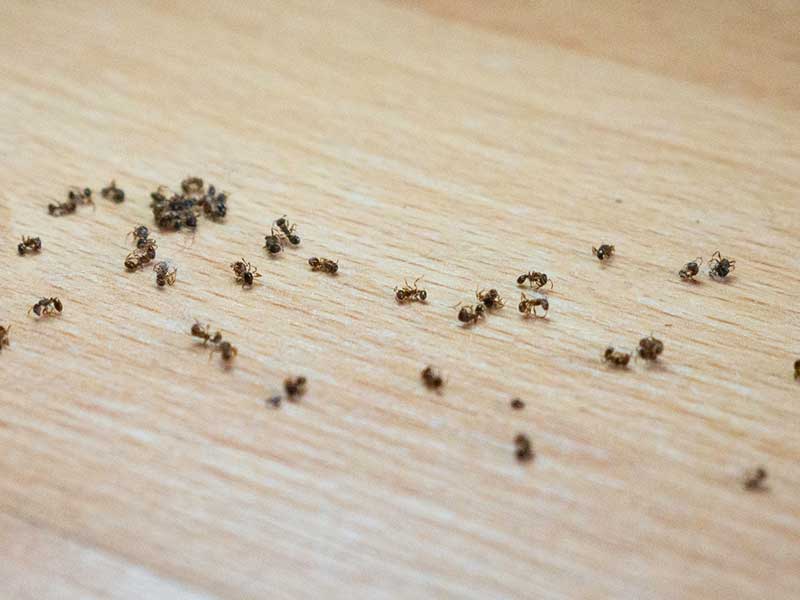
Pheromones
Ants tend to secrete pheromones to communicate with other ants of their colony. These pheromones are chemicals that can lead to a certain kind of behavior or response in another member of the species.
Ants generally use these pheromones to create a trail so that the other ants can follow them to and from a nearby food source and their nest.
Ants can also release pheromones when they are in danger or when they are dying. This can alert the other ants not only of their death but also of the surrounding danger and can allow them to change their responses and behaviors accordingly.
Oleic Acid
Another chemical that ants secrete is oleic acid, a fatty acid. When it comes to ants, however, they release this chemical only a couple of days after their death so that this can act as a signal for the other ants of their colony.
Whenever the other ants sense or smell this oleic acid, they take it as a sign that an ant from their colony is dead. Apart from merely signaling them of danger, this acid also begins a series of responses among the other ants so that they can carry the dead ant away and perform their death rituals.
Do Ants Ever Avoid Dead Ants?
It is possible for ants to avoid dead ants, especially if they have already performed their death rituals. However, in case this still has not happened, ants may avoid dead ants if they have reason to suspect that there is still some danger nearby.
It takes a couple of days until an ant dies for the other ants to realize that it is dead. Within these two days, the ants might avoid coming near the dead ant either because they do not yet know that the ant is dead or because they are aware of the danger due to the pheromones that the ants released.
How Do Ants Deal With Dead Ants?
You now know that within two days of their death, the corpses of ants tend to release oleic acid to alert the other ants of their death. Once the ants receive this smell or signal, they make their way to the dead ants to take care of the corpse.
What exactly do ants do with dead ants? What kind of ritual is involved in this process?
Once the ants are sure that there is a dead ant nearby, they will carry it away from the site of its death and take it to their dumping ground which is referred to as a midden.
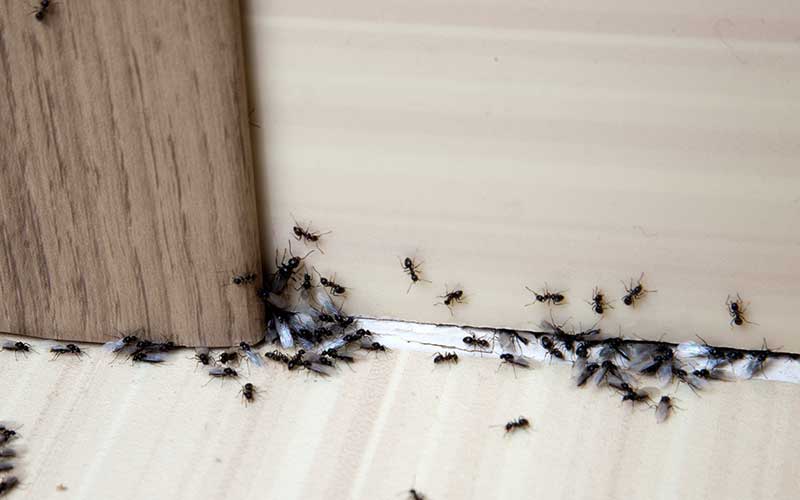
This midden is usually where ants tend to discard their waste and this applies to dead ants as well, turning it into a burial site.
It is important to note that ants do not perform this death ritual as a part of their mourning process. Instead, this is a way for them to keep the dead ant away from the rest of the colony so that it does not end up spreading diseases and infections to them, especially to the queen.
This is usually why you might end up seeing multiple ants near a dead ant a couple of days after you kill it.
Do Ants Eat Dead Ants?
Ants usually do not eat dead ants. In most cases, the only response that the other ants will display is to flock around the dead ant and carry it off to the midden to dispose of it. This can help maintain the health of the rest of the colony.
Eating dead ants is not a common response among ants. However, in case there are extremely few resources around them, they might have to resort to eating the dead ants to sustain themselves.
This kind of behavior also depends on the particular species of the ants. While most species will not eat their dead, some might do this regularly. Some might also avoid eating their own dead while eating the dead of other species in case they come across them.
However, since dead ants might pose a threat to the species’ overall health, ants usually avoid eating them.
Playing Dead
Playing dead can be an effective way for insects and other animals to keep potential dangers away from them. Whenever they sense that another species is nearby, they might play dead so that they do not face any threat of them.
In this way, if the other species can tell that they are dead, they will leave them alone and move on.
While this can be an effective tactic, it is not actually that common when it comes to ants. If it does happen, it can be quite rare and highly difficult to spot.
This behavior also differs from one species to another. For instance, fire ants commonly tend to play dead, especially when they are quite young so that they can escape aggression from other ant species and colonies.
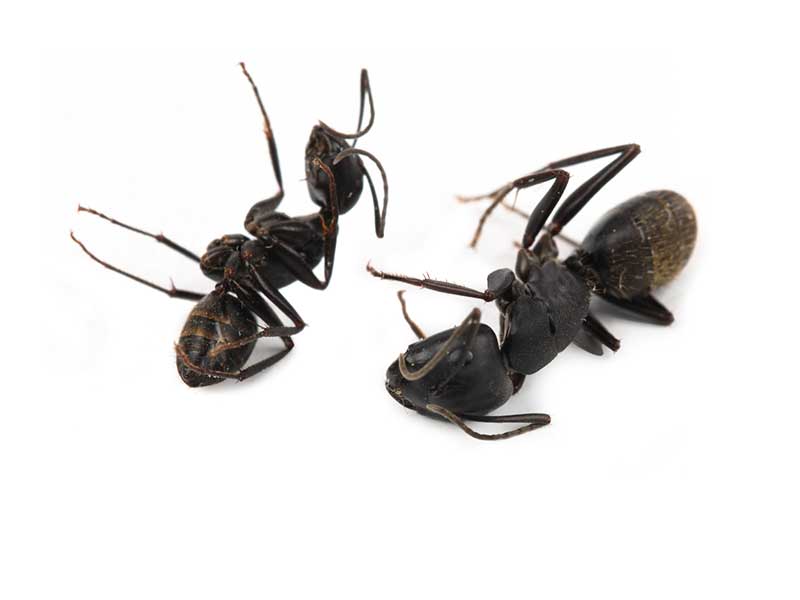
Once these ants grow a bit, however, they can start using their aggression levels to counter attacks instead of simply playing dead.
There are not too many other known species that do this.
When an ant plays dead, however, the usual chemicals released will not be released, allowing ants to stay away from the ant.
Death of a Queen Ant
The queen ant is the one that tends to reproduce in a given ant colony. This is why other ants of the colony tend to keep the queen protected inside the nest, bringing food on a regular basis and protecting the queen from danger.
However, in case a queen ant happens to die, more ants will get attracted to the location. They will also carry the queen to the midden for burial and disposal.
A queen ant dying can also signal the death of the entire colony since no more reproduction will be able to take place. In this sense, killing a queen ant can be an effective strategy of killing the entire infestation.
It can also help you spot the entire colony whenever they come to the queen.
How to Kill Ants Without Attracting More Ants
Since killing ants only tends to attract more ants, it is important to kill ants using methods that also end up killing the entire colony. Take a look at some of these methods below.
- You can make some solutions on your own by using water and substances like vinegar, baking soda, citrus, diatomaceous earth, and more. Other natural substances such as spices and flour can also be effective in keeping ants away.
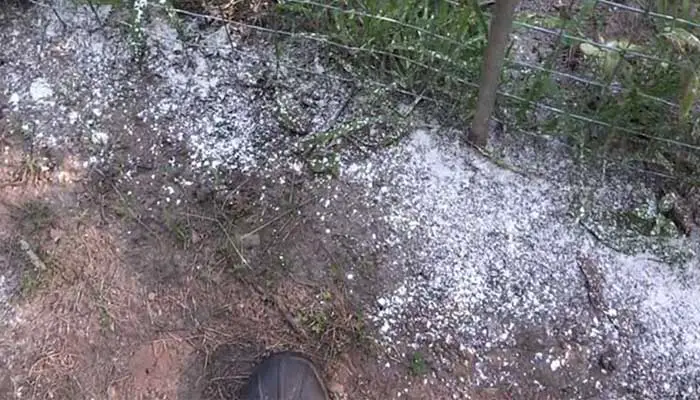
- You can buy anti-ant sprays that can effectively break the trails that ants tend to follow. While this might not be enough to keep the ants away entirely, you can definitely use it with another method to get rid of the colony.
- One of the most effective ways of killing ants is by setting baits or traps near the hole or gap from which they enter your house. They might confuse these baits for food and carry it to their queen for the first share. Once the queen eats it, this can signal the death of the entire colony.
- Once you manage to kill the entire colony, it can help to seal off the access points such as cracks, gaps and holes so that other ants cannot enter your house that easily.
Final Remarks
It is now clear that killing ants does attract more ants. This is generally because of the pheromones and oleic acid released by the dead ant to alert the other ants of the same colony.
The death of a queen ant can also attract even more ants towards it. It is important to figure out ways to kill ants without attracting more ants so that you can get rid of the infestation as a whole.

